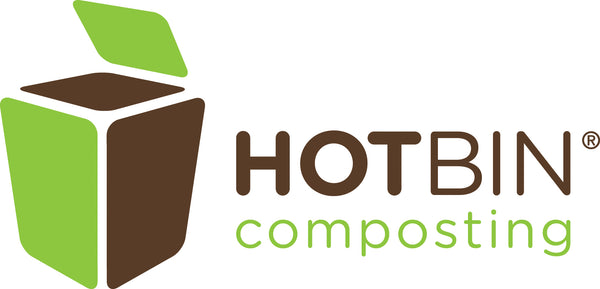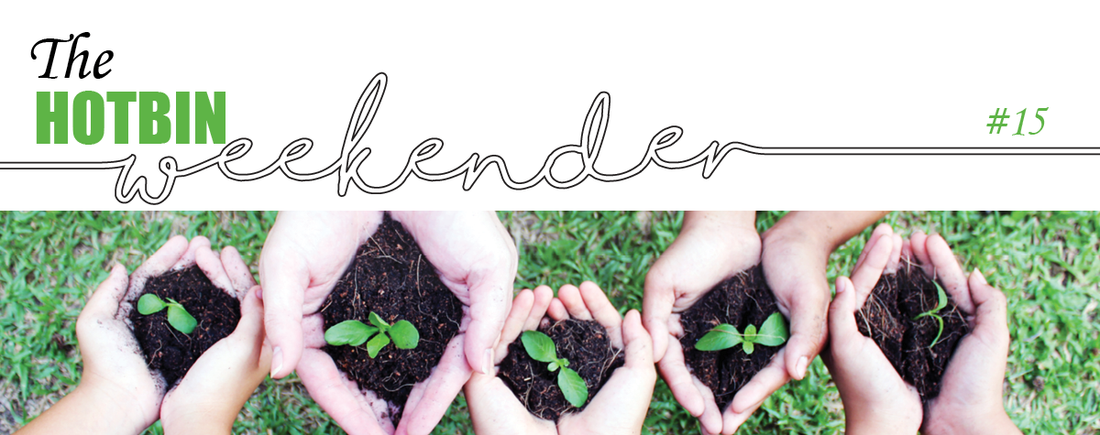Community Composting Services
As more states and local governments explore policy avenues to reduce and manage organic waste and its impact on the environment, waste management companies and local communities are developing programs that will assist citizens to comply with local bans and restrictions.
Bans and restrictions on the disposal of organic waste, are driving food waste generators to explore more sustainable practices, such as sorting organic waste and using collection services, dropping waste on community composting sites or composting at home.
For those that are not ready to start composting at home, Community Composting Services are becoming a ‘halfway composting house’ where they can drop their organic waste, until they are ready to start composting at home.
Taking place at the community level, it’s a terrific strategy for unleashing the power of collaboration and civic engagement to move toward a zero-waste economy that puts people and planet first. Community composting is the not-so-radical idea that compost is used where it’s made, and the community participates in some way.
Community-scale composters serve an integral and unique role in both the broader composting industry and the sustainable food movement. They are often social innovators and entrepreneurs. Many collect food scraps with bikes. Others employ youth and marginalized individuals. A growing number utilize cooperative ownership structures.
Community composters are located at schools, universities, community gardens, farms, and many other places – urban, rural, and suburban. Their distinguishing feature is keeping the process and product as local as possible while engaging the community through participation and education. If needed, contact your local community to learn what they offer.
If you are starting a community composting site, HOTBIN can help. Send us an email to community@hotcomposting.com to start a conversation.
Composting at Home
Hot composter bins solve the main issue that made industrial composting more efficient in the past… heat! HOTBIN (our brand) is an aerobic composter which achieves hot composting temperatures of 104-140°F by maximizing what nature does naturally, which is... keeping bacteria happy with sufficient water, oxygen and food (waste).
HOTBIN insulated EPP (Expanded Polypropylene) walls locks the heat raising inside temperature generated by bacterial as waste is digested.
Waste is mixed with shredded paper to control moisture, and wood-chip/mulch which is used to create air spaces. Air (oxygen) enters via the bottom air inlet using air spaces to circulate around bacteria, feeding them with oxygen and keeping them composting aerobically. The heat produced during the bacterial activity creates moisture during decomposition which then converts into water vapor and leaves via the valve as stream.
HOTBIN works as an insulated chimney with three layers: 1) The upper hot active layer; 2) the maturing warm in the middle; and 3) the cool base. Click to view explanatory video.
Don’t have a big backyard to Compost? No problem
If you do not have space to create an outdoor compost pile, nor space to have a bigger composter, HOTBIN Composting offers a slim (small footprint), durable and efficient ‘hot-composting’ bin that can be located literally anywhere in the outside (out next to your kitchen door, next to the garage, outdoor back-porch, etc.).
Award winning HOTBIN 26 Gal., Mini composter bin, has been specifically designed for small households (1-3 people) with small amount of waste to compost, and/or small gardens. HOTBIN100 Mini, has the same features and benefits of the larger size HOTBIN200 MK2, in a smaller scale.
HOTBIN Mini produces compost in 30-90 days, have a small footprint (17Wx17DX45H in.), works year-round, has a valve to collect liquid fertilizer, requires NO tumbling, NO turning, NO power source, and comes fully assembled.
You just need to follow HOTBIN’s team suggested mix of organic waste, shredded paper and mulch, and expect your compost in as little as 30-90 days.
Furthermore, although we know that a properly managed composting bin will not smell bad nor attract pests or rodents, all HOTBIN Composters comes with a built-in charcoal filter that reduces or eliminate odors which are known to attract unwanted animals.
Click to learn more about HOTBIN Mini
Hot versus Cold Composters
I read an article that cites 4 cold-composters (all tumblers) as 'best to buy composters'. I scratched my head when the same article cites reviews noting difficulty in assembling, small chambers, leaks, composting taking too long to produce, and requiring extra care when adding dry ingredients. The review involved 30 different models of tumblers and 209 consumers consulted.
The fact is that, although they are very economical, they are not user-friendly and, producing rich compost can take as long as 12 months. Lastly, turning a tumbler that is full of composting-waste can be challenging as the load is heavy.
I find hot composting to be the easiest and fastest way of composting food & garden-waste, as the heat accelerates the composting process, reducing the time it takes to produce compost. Click to read the complete article.
Going over the Benefits of Composting
Composting is one of the most effective ways of getting rid of organic materials (including plant materials and food) in an eco-friendly manner. Whether it’s in our homes or our farms, composting helps to reduce organic waste, which in return, helps to reduce the emission of greenhouse gases (incl. methane).
Whether you use a local provider to collect your organic waste, transport it to a community composting site or compost at home, the following is a list of composting benefits:
- Enriches soil, helping retain moisture and suppress plant diseases and pests.
- Reduces the need for chemical fertilizers.
- Encourages the production of beneficial bacteria and fungi that break down organic matter to create humus, a rich nutrient-filled material.
- Reduces methane emissions from landfills and lowers your carbon footprint.

